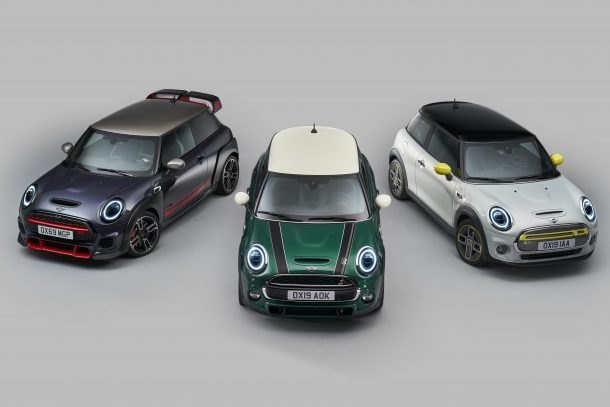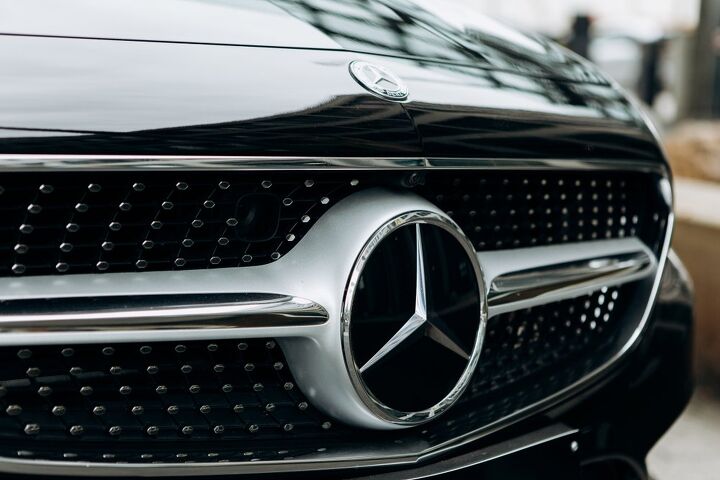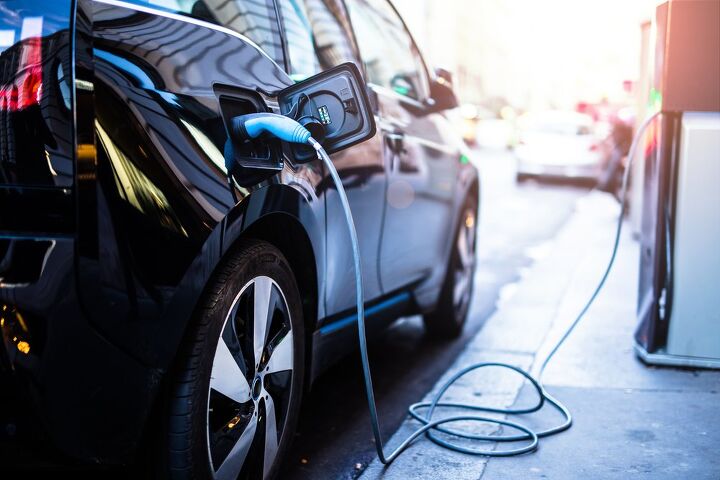#Investments
Pony Up: Toyota Pours $400 Million Into Pony.ai
Last year, Toyota and Pony.ai announced a pilot project to test autonomous vehicles in Chinese cities, with an aim to continue working together on self-driving projects in Asia. The time for strengthening the relationship is now, with Pony confirming it had received a $400 million investment from the Japanese automaker as part of its latest funding roundup.
Toyota doesn’t have an exclusive arrangement with the startup and is free to work with other companies. Pony already has other investors on board, operating autonomous testing hubs in California, Beijing, and Guangzhou. However, the investment from Toyota could mean it’s about to become a whole lot more important to the business, as the pair are already discussing new ways to collaborate once they’ve finished fielding testbed Lexus RXs to sharpen the firm’s software.
Daimler: Here Come the Savings, There Go the Jobs
In November, Daimler announced a restructuring plan that called for the elimination of 10,000 jobs, claiming the effort would result in an estimated 1.4 billion euros ($1.5 billion) in savings by the end of 2022. Chairman Ola Källenius may just be getting warmed up.
According to German outlet Handelsblatt, sources within the company claim austerity measures will be expanded at Tuesday’s investor conference. Källenius is said to raise the job cut figure to 15,000 while scaling back (or dropping) several side businesses that aren’t turning a profit. As well, the automaker will likely axe a few models that don’t fit in with the core brand’s luxury image, starting with the Nissan Navara Mercedes-Benz X-Class.
Brexit Complications Reportedly Delay Next Mini
BMW Group has delayed the development of a next-generation Mini Cooper, citing a need to reduce cost and comfortably navigate Britain’s trade relations with the European Union after Brexit.
Considering Europe has had since June of 2016 (when the referendum took place) to figure all this out, it feels silly that the region is still in a panic. Yet that’s reality in which we live. Despite the United Kingdom voting to withdraw from the European Union years ago, the decision received an immense amount of pushback. Negotiations stalled, arrangements went unmade, and the UK eventually voted in a gaggle of Conservatives in the last election — giving them a strong majority in Parliament.
That new political makeup, which includes Prime Minister Boris Johnson, meant Brexit could finally happen. But it doesn’t undo the wasted years that failed to produce a comprehensive trade deal between the UK and EU, or the resulting complications.
Report: China's BAIC Wants to Increase Daimler Stake
A new report indicates that BAIC Motor Corp, Daimler’s primary Chinese joint-venture partner, wants to increase its stake in the company. Currently, BAIC owns 5 percent of the German automaker ( purchased in July) with rumors swirling in October that the firm wanted to increase its investment. There were also claims that Geely was attempting to stand in the way of the prospective deal.
While not Daimler’s main squeeze in Asia from a production perspective, Geely actually owns 9.7 percent of the company — giving it quite a bit of leverage. As such, there were murmurings that Geely put the kibosh on any ideas BAIC had on investing further. Geely has rebuffed the accusation. “We are a long-term investor in Daimler. We do not react spontaneously to any volatility and we support Daimler’s management and their strategy,” the firm explained.
Be that as it may, there appears to be a minor power struggle between the two Chinese companies. Both seem interested in strengthening their influence and happen to find themselves in each other’s way.
Volkswagen Boosts Tech Spending to $66 Billion Over Five Years
Volkswagen Group has decided to increase spending on the development of electric and digital technologies over the next five years to 60 billion euros ($66 billion USD). The automaker estimated the revised strategy amounts to slightly more than 40 percent of its investments in property, plant and equipment, and all research and development costs during the planning period.
Of that sum, 33 billion euros are expected to go directly toward the development of new electric vehicles. The increase allocates roughly €12 billion annually for hybridization, electric mobility and digitalization. The old plan set aside 8.8 billion euros per year.
Toyota Sets Aside $391 Million for Texas-made Pickups
Toyota Motor Manufacturing Texas is slated to receive a $391 million investment earmarked for streamlined pickup production. The manufacturer wants to merge the Tacoma and Tundra models onto a common platform, something we’ve mentioned in the past, and Toyota’s Tuesday announcement solidifies those rumors.
The new platform is meant to make hybridization easier and provide the basis for the entirety of the automaker’s global truck line — including SUVs like the Sequoia.
Junk Food: Ford's Debt Rating Downgraded by Moody's
It should surprise no one that the fortunes of a car company aren’t solely tied to the quality or relevance of the vehicles they produce. Much also hinges on Wall Street’s confidence in the place and, as of now, the money mavens don’t seem to have much conviction in Ford at all.
Moody’s, the investor services company which rates fixed-income debt securities, has downgraded Ford’s credit to junk status. They kicked it out of Baa3 and into Ba1 territory, which is the first rung of junk, a term which simply translates into non-investment speculative grade debt. This preceding phrase causes your author’s mind to spin even more than it does after studying assembly instructions for an IKEA Vittsjö shelving unit.
FCA Earmarks $1.1 Billion for Alfa Crossover, Hybrid Panda
Last year, Fiat Chrysler Automobiles announced a €5 billion plan to set the table for more palatable electric vehicles — including hybrids — and boost capacity utilization at its Italian facilities. Roughly one fifth of that total will go toward the launch of a compact crossover from Alfa Romeo and Fiat’s upcoming Panda hybrid.
Numerous Italian trade unions (AQCF, FIM, FISMIC, UGLM, and UILM), after speaking with the manufacturer, have confirmed the Pomigliano plant will undergo some retooling in preparation for the new models. Meanwhile, FCA confirmed the cost to Reuters — stipulating that the total investment for the two models would be “closer to 1 billion than 500 million euros.”
QOTD: Alternative History of Avoiding Disastrous Consequences?
Last week we played a round of Armchair Alternative History where we discussed missed opportunities in the automotive industry. Conversation focused on actions automakers didn’t take when they should’ve.
Today is round two. Let’s go back and erase things that actually happened.
Aston Martin Has a Few Problems
Keen to expand into new segments and redefine itself as an auto brand, Aston Marin is now a publicly traded company with a crossover vehicle on the horizon. The plan, established by CEO Andy Palmer and about as novel as dirt, was due for a checkup last week. Sadly, the automaker was not released with a clean bill of health. Aston reported a pre-tax loss of £78.8 million ($92 million) in the six months ending in June.
Speaking with the media, Palmer argued that the company had done well in the first quarter but claimed economic conditions and dwindling dealer interest had hurt the business in Europe, the Middle East and Africa. The United States performed comparatively better — possibly due to the marque bringing on Tom Brady as a brand ambassador, even though at least two of the cars built with the athlete’s name on them have already passed through the secondhand market $100,000 below sticker. Unfortunately, minor victories weren’t nearly enough to keep the firm’s share price from tumbling downward like an allegedly deflated football.
Ford Triples Down on Mobility, Acquires Two Tech Firms
While mobility has placed the automotive industry in a state of minor limbo, manufacturers achieving a major breakthrough may yet ascend to heaven — financially speaking. Ford has promised to deliver robot-driven taxis within a couple of years and expended quite a bit of cash to get there since acquiring Argo AI in 2017. However its autonomous arm, Ford Smart Mobility, has only encountered mixed success. Progress in terms of self-driving has been incremental, with the company shuttering some of the side businesses that explored alternative revenue streams (e.g. Chariot) and losing millions though its software investments.
Disinterested with failure, Ford partnered with Volkswagen Group earlier this year. As part of the deal, VW agreed to dump another 2.6 billion into Argo in hopes that it would accelerate development. Ford said it would be taking things a step further on Tuesday and announced the acquisition of two more tech companies.
China's BAIC Purchases Five Percent of Daimler
Beijing Automotive Group Co Ltd (BAIC) announced on Tuesday that it had purchased a 5 percent stake in Daimler AG. Despite the pair have been partners in Asia since 2003, via the Beijing Benz Automotive joint venture, Zhejiang Geely Holding Group purchased nearly 10 percent of the German company in 2018 and was reportedly seeking high levels of cooperation.
As one of Geely’s direct rivals, BAIC claimed its investment would help solidify the relationship with Daimler. “This step reinforces our alignment with, and strong support for, Daimler’s management and strategy,” BAIC chairman Heyi Xu said in an official statement.
FCA Putting $788 Million Behind New 500 EV, Small Battery Platform
Fiat Chrysler will invest $788 million to build a production line for the new 500 electric, according to the company’s European CFO Pietro Gorlier. An extension of automaker’s plan to to dump 5 billion euros ($5.6 billion) into Italy, the deal makes good on earlier promises that the automaker would establish a dedicated small battery-electric vehicle platform.
Europe Wants to Compete With China's Battery Production, Eventually
Wary that China might have the battery market totally cornered by the time electric vehicles become mainstream, the European Union is trying to jumpstart the industry at home. This year, the EU has started working with manufacturers and financial institutions to develop a reliable supply chain of the lithium-ion packs that have been difficult to come by.
European Commission Vice President Maros Sefcovic is targeting 100 billion euros ($113 billion) for the program, which Bloomberg said would help the EU “act like China.”
Toyota Spending $2 Billion to Develop Electric Cars in Indonesia
Having recently announced plans to “popularize” battery electric vehicles, Toyota now expects half of its global volume to stem from electrified cars by 2025. That’s five years sooner than originally promised.
Toyota may seem perpetually averse to change but it has been making a lot of moves behind the scenes to ensure it’s at the forefront of a shifting market while also trying to future proof itself in the event that electrification winds up being a dead end. The plan is rather complex and, as I don’t want to re-write a 900-word article, I would like to redirect you to the relevant information.
However, as nuanced as Toyota’s overall strategy may be, the company is still going to need to spend truckloads of cash to remain in the game. With that in mind, the Japanese automaker appears to be investing $2 billion to develop electric vehicles in Indonesia over the next four years — with hybrids being first on the docket.





























Recent Comments